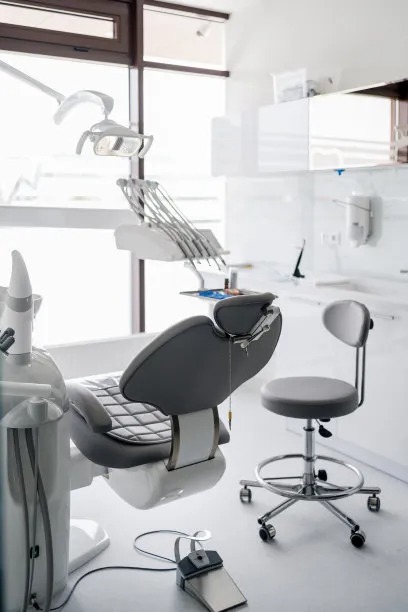Essential Guidelines to Follow for Optimal Results Before and After Your Dental Filling Procedure
Summary: Dental fillings are a common solution for restoring decayed or damaged teeth, but optimal results require careful preparation and post-procedure care. This article outlines essential guidelines to follow before and after undergoing a dental filling procedure. We will discuss the importance of oral hygiene leading up to the appointment, dietary considerations that influence recovery, how to manage discomfort post-treatment, and the significance of follow-up visits for maintaining oral health. By adhering to these guidelines, patients can ensure better recovery, minimize complications, and enjoy long-lasting results.
1. Importance of Oral Hygiene Before Treatment

Prior to your dental filling, maintaining excellent oral hygiene is crucial. Brushing your teeth twice daily and flossing at least once can significantly reduce the amount of bacteria in your mouth. This action not only protects against further decay but also minimizes the risk of infection during the filling procedure. Ensuring a clean mouth creates a healthier environment for your dentist to work in.
Moreover, consider using an antibacterial mouthwash. Rinsing with a mouthwash can further aid in eliminating harmful bacteria, contributing to a smoother dental experience. If there are any concerns about specific areas in your mouth, its important to discuss them with your dentist during your pre-appointment consultation.
Lastly, if you have existing dental issues, addressing them beforehand can lead to a more successful filling process. Inform your dentist about any dental pain or sensitivity to ensure a comprehensive approach to your oral health care.
2. Dietary Considerations Before Your Appointment
Your diet leading up to the dental filling can significantly influence the outcome of the procedure. Its advisable to avoid certain foods—particularly those high in sugar and carbohydrates, which can exacerbate tooth decay. Instead, focus on consuming cavity-fighting foods such as apples, carrots, and dairy products, which are known to strengthen teeth and promote a healthier oral environment.
In the hours before your dental appointment, its essential to refrain from eating heavy meals. This will make it easier for your dentist to work without complications. Drinking plenty of water is beneficial too; staying hydrated can help maintain oral moisture, which is especially important if you tend to feel anxious before dental procedures.
Being mindful of your diet not only aids in better oral health but can also enhance the effectiveness of your treatment. A healthier mouth will support better healing post-operation, leading to a smoother recovery after your filling.
3. Managing Discomfort after the Procedure
After receiving a dental filling, its not uncommon to experience some discomfort. To manage this effectively, consider taking over-the-counter pain relief medications as directed by your dentist. Having these medications on hand before your appointment means you will be prepared should you feel any discomfort afterwards.
Cold compresses can also provide relief—they are particularly effective in minimizing swelling and pain. Simply applying a cold pack to the cheek adjacent to the filled tooth can help numb the area and reduce inflammation, making your recovery more comfortable.
Additionally, be mindful of what you eat in the days following a dental filling. Avoiding very hot or cold foods can prevent discomfort. Stick to soft foods and aim for a diet that won’t stress the newly filled tooth, allowing it time to settle properly.
4. The Importance of Follow-Up Visits
Maintaining optimal oral health doesnt end with the filling procedure; follow-up visits are essential. These appointments allow your dentist to assess the fillings integrity and ensure there are no ongoing issues. Typically, a check-up is recommended about six months after the initial filling.
During these visits, you can discuss any concerns, like sensitivity or discomfort that may arise after the procedure. Your dentist can make adjustments if necessary, ensuring the filling fits comfortably with your bite and doesn’t lead to future complications.
Regular follow-up also allows for preventative measures to be put in place. Your dentist will provide tailored advice based on the health of your teeth, helping to avoid further decay and ensuring ongoing oral health.
Summary:
In summary, preparing for and recovering from a dental filling involves several key practices that patients should not overlook. From prioritizing oral hygiene and dietary choices before the appointment to managing post-treatment discomfort and keeping up with follow-ups, each step is vital for an optimal outcome. Following these guidelines enhances your overall dental experience, ensuring long-lasting results that contribute to your oral health.
This article is compiled by Vickong Dental and the content is for reference only.



